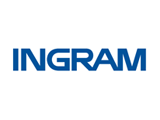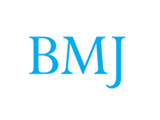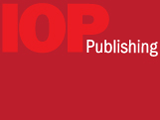John Wiley & Sons, Inc., today announced a continued increase in the proportion of its journal titles indexed in the Thomson Reuters® 2012 Journal Citation Reports (JCR), with 1,192 (approximately 77%) titles now indexed, up from 1,156 in the 2011 JCR. Wiley titles now account for the largest share of journals in 50 categories.
In the 2012 JCR the number of Wiley journals with a top category rank increased by 19% (4) and the number of Wiley titles indexed in the top ten of their categories also increased by 11% (27). Of publishers with more than 100 journals indexed in the 2012 JCR, Wiley saw the largest proportion of titles (close to 60%) increasing in Impact Factor (IF).
Highlights:
- 1,192 Wiley journals now have an IF.
- 25 Wiley journals achieved a top category rank across 31 JCR categories, up from 21 in 2011.
- 264 Wiley journals achieved a top 10 category rank across 341 categories, up from 237 in 2011.
- 59.4% of Wiley journals increased their IF.
- Wiley titles appear in 218 of the 232 subject categories.
- Wiley journals make up the largest share of journals in 50 categories.
- CA – A Cancer Journal for Clinicians, a Wiley published journal, continues to have the highest IF in the JCR.
“We are honoured to work with the editors, societies, and publishing teams behind such high quality publications, and it gives us great pleasure to see the portfolio go from strength to strength. All those involved, our colleagues and our partners, should be delighted by the latest JCR results,” said Steven Miron, Senior Vice President in Wiley’s Global Research business.
One of the largest changes this year is the partnership between Wiley and the American Geophysical Union, whose portfolio of influential geoscience and geophysics titles is responsible for 6% of citations to journals published by Wiley in the 2012 JCR. Of these titles, Journal of Advances in Modeling Earth Systems entered the Meteorology & Atmospheric Sciences category in the top ten, with an IF of 4.117.
Other success stories include the first appearance of Advanced Energy Materials, entering the JCR with an Impact Factor of 10.043 – putting it in the top ten of all five of its JCR subject categories. Advanced Energy Materials joins the successful Advanced Materials series, which includes titles such as Advanced Functional Materials (9.765) and Advanced Materials (14.829). Collectively, these journals appear in the top ten of a JCR subject category 15 times, asserting the traction of this journal series within the scientific community.
This year also sees a continuing increase in IF of CA – A Cancer Journal for Clinicians, published on behalf of The American Cancer Society. Last year this journal became the first to achieve an IF over 100 and has this year broken its own record with an IF of 153.459 at 0% self-citation, a 51% increase from its 2011 IF. The Impact Factors of its two sister titles, Cancer (5.201) and Cancer Cytopathology (4.434), also increased.
The WIRES (Wiley Interdisciplinary Reviews) portfolio has continued to increase in strength, with seven WIRES titles now indexed in the JCR, three of which received their first IF this year.
Impact factors are a metric that reflect the frequency that peer-reviewed journals are cited by researchers, and are often used as a tool for evaluating a journal’s quality.
Highlights in Chemistry, Physical Sciences and Engineering:
Four publications rank at number one in their category this year, including Computer-Aided Civil and Infrastructure Engineering (4.460 and number one in three categories); Acta Crystallographica Section D which is distributed on behalf of the IUCR and further increased its IF to 14.103, now ranking number one in two categories; the International Journal of Energy Research (1.987); and WIREs Computational Molecular Science (5.738) which received its first IF and entered the JCR at number one of the Mathematical & Computational Biology category.
Other journals with impressive first IFs include Advanced Energy Materials (10.043); Greenhouse Gases: Science and Technology (2.679/ jointly published with the SCI); the International Journal of Applied Glass Science (1.548/published on behalf of the American Ceramic Society); and WIRES Data Mining & Knowledge Discovery (1.422). These excellent results underline Wiley’s constant efforts for innovation in publishing.
Angewandte Chemie, a journal of the German Chemical Society published under the Wiley-VCH imprint, saw its IF rise further to 13.734. It has strengthened its position as the leading multidisciplinary chemistry journal publishing both primary research and review articles. ChemSusChem, Angewandte’s sister journal jointly published by Wiley-VCH and ChemPubSoc Europe, received an impressive new IF of 7.475, a further increase of 43%.
Highlights in Social Sciences and Humanities:
Wiley publishes 424 ranked titles within the Social Science JCR categories and 19% (79 titles) are ranked within the top ten of their respective categories, achieving 90 top ten rankings. Wiley publishes the top ranked journal in seven of the Social Science JCR categories, including Business, Finance; Health Policy & Services; Psychology, Educational; Family Studies; Public Administration. The Milbank Quarterly topped categories in both the Science (Health Care Sciences & Services) and Social Science (Health Policy & Services) JCR. 17% of the Social Science JCR total citations received in 2012 were to Wiley published titles.
Eleven titles received an IF for the first time in 2012 including Analyses of Social Issues and Public Policy which ranked within the top ten for its subject category. Applied Psychology: Health and Well-Being and Global Policy received their first IFs in 2012 and entered their subject categories within the top 20.
Wiley’s Social Sciences and Humanities titles received several notable increases, including Business Strategy and the Environment which increased by 65% from 1.960 to 3.236 and Review of Policy Research which increased by 72% from 0.646 to 1.113 placing it within the top ten journals in Public Administration. Journal of Child Psychology and Psychiatry’s IF increased from 4.281 to 5.42 in 2012, ranking it second in Psychology, Developmental. Nine Wiley published journals saw their 2012 Impact Factors double, including Australian Accounting Review; Political Studies Review; Syntax; International Journal of Finance & Economics and The Developing Economies.
Wiley publishes more ranked titles than any other publisher in 12 out of 52 Social Science categories (including Anthropology, Business, Finance, Economics, Political Science, and three Psychology categories) and publishes the number one journals in nine categories (including Neuroimaging, Radiology, Biodiversity Conservation, Physical Geography, Zoology, and Palaeontology).
Highlights in Life, Earth, and Environmental Sciences:
Eighty-five journals within Wiley’s Life, Earth, and Environmental Sciences publishing program are ranked within the top ten of their category, giving 101 top ten rankings overall. Eight journals rank at number one in their categories, including Ecology Letters which achieved an IF of 17.949 and retained its position as the number one ranking journal in Ecology.
Six new journals received their first IF including WIREs RNA at 4.186, Biotechnology Journal at 3.446 and the recently launched open access journal Ecology and Evolution at 1.184.
There were also strong performances for Annals of the New York Academy of Sciences (4.375), FEMS Microbiology Reviews which rose from 10.960 to 13.231, Human Brain Mapping (6.878) and Reviews of Geophysics, published on behalf of the American Geophysical Union (AGU), which increased to 13.906 and ranks number two in Geochemistry & Geophysics.
Microbial Biotechnology, which recently moved to an open access model, achieved its second IF rising from 2.534 to 3.214. It went up 14 places in the Microbiology category to 38/116, and 21 places in the Biotechnology & Applied Microbiology category to 41/159.
Highlights in Health Sciences:
This year 329 Wiley health science journals featured in the JCR, including eight number one ranking journals and overall 62 journals which appear in the top ten of a subject category. Three titles have been indexed for the first time and received their first IF.
The number one ranked journals are CA – A Cancer Journal for Clinicians (153.459/Oncology), American Journal of Transplantation, (6.192/Transplantation), Addiction Biology (5.914/Substance Abuse), Addiction (4.577/Substance Abuse – Social Science), Periodontology 2000 (4.012/Dentistry, Oral Surgery & Medicine), International Journal of Andrology (3.565/Andrology), Medical Education (3.546/Education, Scientific Disciplines) and BIRTH: Issues in Perinatal Care (2.926/Nursing, in both Science and Social Science JCRs).
Wiley now publishes the top three journals in the Substance Abuse Science category: Addiction Biology, Addiction, and Alcoholism: Clinical and Experimental Research.
British Journal of Pharmacology was awarded an Impact Factor of 5.067 – making it the leading general pharmacology research journal in the pharmacology and pharmacy category.
Both journals published on behalf of the American College of Rheumatology, Arthritis & Rheumatism, and Arthritis Care & Research, remain in the top ten of the Rheumatology category.
The Cochrane Database of Systematic Reviews is ranked 11 of the 151 journals in the Medicine, General & Internal category. The total number of times the CDSR was cited increased from 29,593 in 2011 to 34,230, meaning the CDSR received the 6th highest number of citations in its category.
































